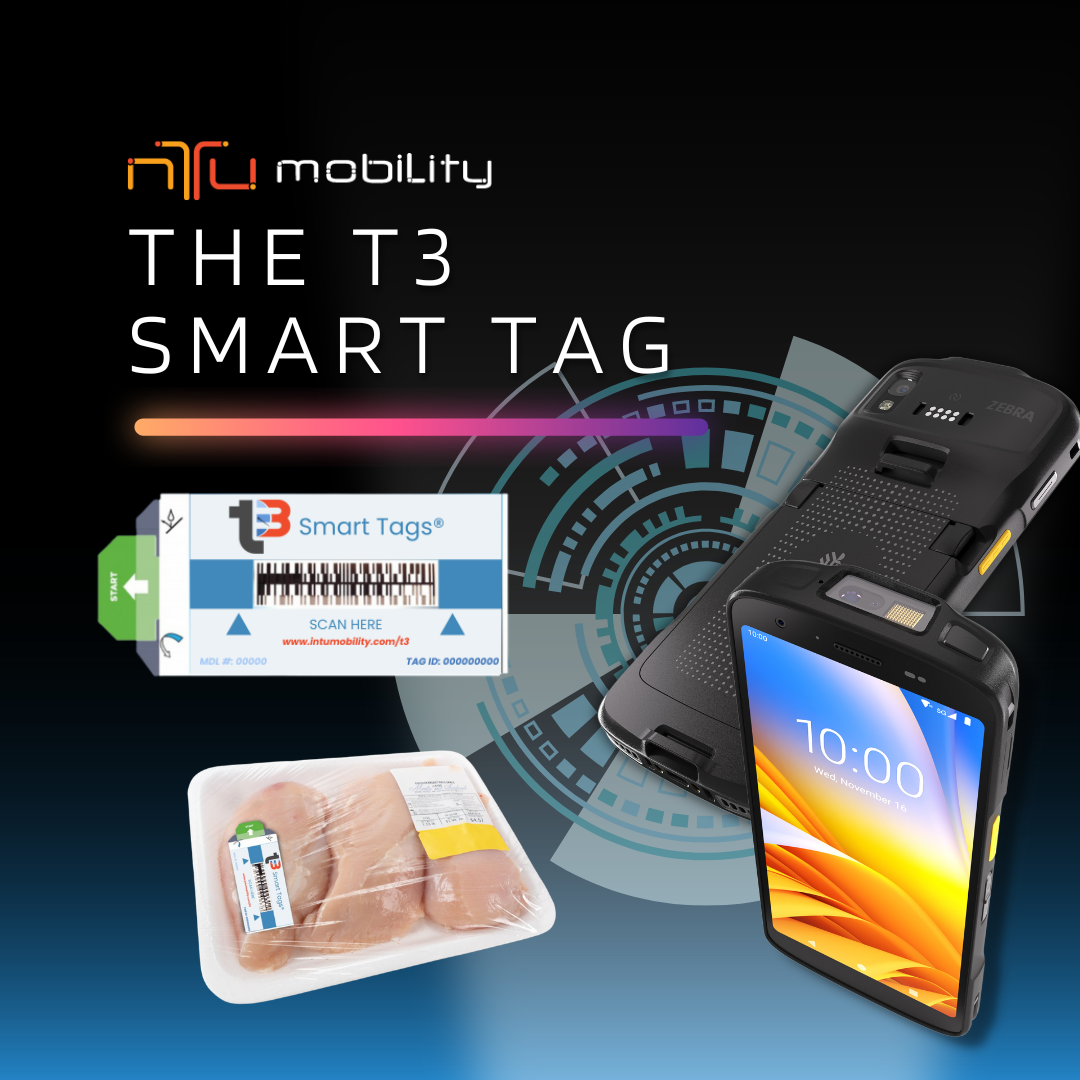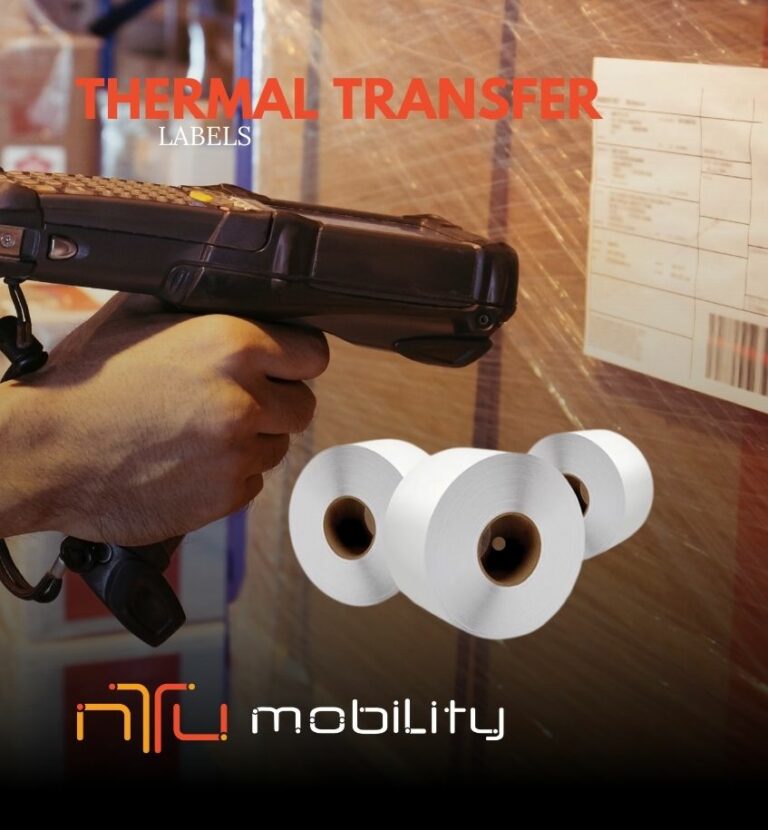Why Upgrading Your Temperature Tracking Technology for the Cold Chain is a Must in 2024
In the realm of food and pharmaceutical logistics, the ‘Cold Chain’ describes a temperature-controlled supply chain that ensures perishable products – such as poultry, beef, fish, and dairy – and heat-sensitive pharmaceutical products are maintained within a safe temperature range, from production to consumption or use. Crucial to the integrity of the cold chain is meticulous temperature tracking, which safeguards against spoilage or degradation, maintains product quality, and, most importantly, protects consumer health.
A stark illustration of the consequences of poor temperature management is the significant cantaloupe recall incident in 2011, where a lack of adequate temperature control led to a deadly Listeria outbreak. This incident underscores the vital role temperature tracking plays in the cold chain and why its importance cannot be underestimated as we move further into 2024.
Danger: Don’t get caught selling a product that has breached.
The recent cantaloupe-linked Salmonella outbreak in Canada is a prime example of the devastating consequences of a compromised cold chain. The outbreak has resulted in the death of five individuals so far, with 129 infections reported across six provinces, a number which has nearly doubled in recent weeks. Vulnerable populations such as children, seniors, and residents of long-term care facilities have been the most heavily impacted. The contaminated cantaloupes, sold under the Malichita and Rudy brands, were imported into Canada in October-November from an as-yet-unidentified location. Authorities are still investigating the exact source of the contamination, but preliminary findings suggest it originated on the farm, possibly through contaminated soil or irrigation water.
If you are not doing everything you can to ensure your product arrives on shelves safely, you risk harming your brand long-term, being fined by government regulators, and facing lawsuits from your end users.
The Importance of End-to-End Cold Chain Temperature Tracking
End-to-end cold chain temperature tracking, from point-of-origin to the retail shelf, is an indispensable process in ensuring the safety, integrity, and quality of perishable goods. At the origination point, manufacturing plants play a crucial role in maintaining the appropriate temperature conditions during the initial production and packaging phases, establishing the foundation of the cold chain. Once goods are ready for transport, distribution facilities come into the picture, ensuring that products are kept within the required temperature range during storage and transportation. This vigilant temperature control continues within the domain of retailers, who bear the responsibility of maintaining the cold chain until the point of sale. The collective participation of these entities in rigorous temperature tracking ensures the safety of perishable products, protects consumers, and upholds the reputation of brands.
How InTu Mobility and the T3 Smart Tags can help you avoid the problem entirely.
The T3 Tag solution from InTu Mobility offers a revolutionary approach to temperature tracking in the cold chain. Leveraging Internet of Things (IoT) technology, these smart tags eliminate human error by providing precise digital data, thereby enabling better-informed business decisions. Furthermore, T3 Smart Tags monitor the cumulative time that products spend outside of their defined temperature thresholds, ensuring the safe delivery of temperature-sensitive goods. The low cost of these tags belies the immense value they bring by offering crucial insights into a product’s entire journey, right down to the last mile.
Made from organic material, easy to scan
These state-of-the-art tags are crafted from next-generation organic material, enabling them to track temperature over time with unmatched precision, all without the need for batteries. The easy-to-scan tags integrate seamlessly with existing systems, providing location and sensor data to software platforms. This not only improves visibility across the supply chain but also allows for tracking at the case and package level, ensuring optimal quality and compliance by preventing out-of-threshold deliveries.
Remarkably, the T3 Tag solution is more than just a collection of tags. It’s a comprehensive monitoring solution includes customizable tags and cloud-based scanning and analytics. Made from food-safe organic material, these tags not only ensure safe and customizable cold chain monitoring but also uphold the highest standards of safety and integrity in the products they track. Ultimately, InTu Mobility’s T3 Tag solution is an indispensable asset to any cold chain operation, paving the way toward a more efficient, reliable, and safe future in perishable goods logistics.
T3 isn’t just a tag, it’s a total software and hardware solution
A remarkable advantage of the T3 Tags is the accompanying software that further elevates its capabilities. This software is designed to accurately monitor and report the status of active tags and scrutinize the temperature thresholds meticulously. It provides real-time data and insights, enabling users to make immediate decisions in case a product goes beyond its established temperature range. This digital platform not only enhances the traceability of perishable goods throughout the supply chain but also allows for quick response times, thereby significantly reducing the risk of product spoilage or degradation. The T3 Tags software ultimately serves as an effective instrument for upholding the integrity of the cold chain, further validating InTu Mobility’s commitment to safe and reliable logistics.
BONUS: We can also help you deploy the right technology around the T3 Solution from scanners, mobile computers like the Zebra TC22/27 or the Zebra TC58, tablets like the Zebra ET60/65, printers, and more!
The Potential Impact of FSMA Legislation
Explanation of FSMA Legislation
The Food Safety Modernization Act (FSMA), passed by the U.S. Food and Drug Administration (FDA), is a proactive legislation aimed at preventing foodborne illnesses instead of responding to them after they occur. FSMA mandates stricter safety measures in the food industry, including stronger temperature controls and enhanced tracking for all perishable goods. The upcoming FSMA legislation will introduce additional regulations, heightening the need for robust and reliable temperature-tracking solutions in the cold chain industry.
How FSMA Legislation Could Affect the Cold Chain Industry
The impact of the FSMA legislation on the cold chain industry cannot be understated. It requires businesses to take a more proactive role in ensuring the maintenance of prescribed temperature ranges for perishable products throughout the supply chain. This will necessitate more sophisticated temperature monitoring systems capable of providing real-time updates and maintaining comprehensive records for audit purposes. Companies that fail to stay in compliance with these rules could face hefty penalties and reputational damage.
The Implications for Temperature-Related Products by 2025
By 2025, the FSMA legislation will likely elevate the standards for temperature-controlled products. The demand for advanced tracking technology, like InTu Mobility’s T3 Smart Tags, is expected to surge as companies strive to meet these enhanced regulatory requirements. Businesses that successfully leverage such innovative solutions will be well-equipped to maintain the integrity of their perishable products, potentially gaining a competitive advantage in the market. Those failing to adapt to these changes may risk falling behind in the industry, highlighting the significance of advanced temperature-tracking technology in the cold chain’s future.
The Impact on Different Industries
Dairy Companies
Dairy products require strict temperature control to maintain their quality, freshness, and safety. Failure to implement robust temperature tracking can lead to spoilage and bacterial growth, compromising both the product’s taste and safety. With the impending FSMA legislation, dairy companies will also face increased scrutiny and more stringent regulatory requirements. Non-compliance could result in significant fines, reputational damage, and, in extreme cases, product recalls, disrupting operations and resulting in substantial financial losses.
Fish Industry
In the fish industry, maintaining a consistent cold chain is essential to prevent spoilage and the growth of harmful bacteria. Without effective temperature tracking, the quality and safety of the products are at risk. Furthermore, the FSMA legislation will mandate comprehensive records of temperature controls throughout the supply chain. Companies lacking a reliable tracking system may struggle to meet these requirements, risking fines, and potential legal action.
Poultry Industry
Poultry is highly susceptible to bacterial contamination, making temperature control a key factor in safe poultry production. Inadequate temperature tracking can lead to widespread foodborne illnesses. In light of the FSMA legislation, poultry companies failing to demonstrate effective temperature control may face harsh penalties, including the possibility of business closure or recall of products.
Beef Industry
The beef industry also relies heavily on effective temperature control. Without robust temperature tracking, the risk of bacterial contamination and spoilage increases significantly. The stricter rules under FSMA legislation will require beef companies to maintain meticulous records of temperature control throughout their supply chain. Non-compliant businesses could face substantial fines, reputational damage, and potentially crippling disruptions to their operations.
The Importance of Proving Product Safety to Consumers
In the cold chain industry, proving product safety to consumers is paramount. The consequences of selling products that have breached safety thresholds, such as temperature limits, can be dire—leading not only to health issues for the end consumer but also to significant legal repercussions and damage to the company’s reputation.
Therefore, demonstrating product safety is crucial. This involves rigorous monitoring and control measures in addition to transparent and thorough documentation of all steps taken to ensure product integrity. Transparency in these processes helps build consumer trust, as customers want to know that the products they consume are handled with utmost care and that their health and safety are a top priority. This transparency fosters loyalty and confidence, bolstering a company’s reputation and standing in the marketplace.
Conclusion: Learn More about our T3 Solution
In conclusion, temperature tracking plays a pivotal role in the cold chain industry, ensuring the safety and integrity of perishable products. As regulatory requirements tighten under future FSMA legislation, the need for robust, reliable, and advanced temperature monitoring systems will become even more critical. Looking forward, we anticipate that by 2024, the cold chain industry will witness a greater adoption of innovative temperature-tracking technologies, like smart tags, in a bid to comply with regulations, mitigate risk, and ensure consumer trust. This evolution will redefine cold chain monitoring, setting new standards for safety, efficiency, and reliability in the management of perishable goods.










